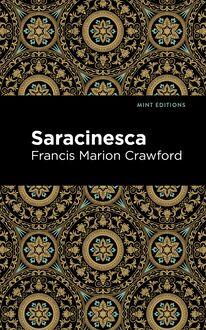-
 Univers
Univers
-
 Ebooks
Ebooks
-
 Livres audio
Livres audio
-
 Presse
Presse
-
 Podcasts
Podcasts
-
 BD
BD
-
 Documents
Documents
-
- Cours
- Révisions
- Ressources pédagogiques
- Sciences de l’éducation
- Manuels scolaires
- Langues
- Travaux de classe
- Annales de BEP
- Etudes supérieures
- Maternelle et primaire
- Fiches de lecture
- Orientation scolaire
- Méthodologie
- Corrigés de devoir
- Annales d’examens et concours
- Annales du bac
- Annales du brevet
- Rapports de stage
La lecture à portée de main
Vous pourrez modifier la taille du texte de cet ouvrage
Découvre YouScribe en t'inscrivant gratuitement
Je m'inscrisDécouvre YouScribe en t'inscrivant gratuitement
Je m'inscrisEn savoir plus
Vous pourrez modifier la taille du texte de cet ouvrage
En savoir plus

Description
Sarrasine (1831) is a novella by French author Honoré de Balzac. Written as part of his La Comédie humaine sequence, Sarrasine is one of Balzac’s earliest works published without a pseudonym and helped to establish his reputation as a serious writer and distinguished member of Parisian high society. Noted for its controversial exploration of homosexuality and castration, Balzac’s novella would become the subject of Roland Barthe’s groundbreaking work of literary criticism, S/Z (1970).
Composed as a frame narrative, Sarrasine begins during a ball at the mansion of the wealthy Monsieur de Lanty. The unnamed narrator, from a window overlooking the garden, listens to the conversations of partygoers and watches as his guest, Beatrix Rochefide, is approached by a mysterious older man. The next night, the narrator tells Beatrix a story involving the man, a respected member of de Lanty’s circle. He begins with the life of Ernest-Jean Sarrasine, a successful young sculptor who, on a trip to Rome, fell in love with an opera star named Zambinella. Convinced she represents the ideal feminine form, he rejects Zambinella’s misgivings and vague excuses, becoming increasingly obsessed with the beautiful singer. Devising a plan to kidnap Zambinella during a party at the French embassy, Sarrasine discovers the truth: the singer is a castrato, a classical operatic performer who was selected and castrated before puberty. Sarrasine, a powerful novella, explores themes of idealization and obsession while illuminating the conflation of sex and gender.
With a beautifully designed cover and professionally typeset manuscript, this edition of Honoré de Balzac’s Sarrasine is a classic of French literature reimagined for modern readers.
Sujets
Informations
| Publié par | Mint Editions |
| Date de parution | 01 décembre 2020 |
| Nombre de lectures | 0 |
| EAN13 | 9781513273242 |
| Langue | English |
| Poids de l'ouvrage | 2 Mo |
Informations légales : prix de location à la page 0,0250€. Cette information est donnée uniquement à titre indicatif conformément à la législation en vigueur.
Extrait
Sarrasine
Honor é de Balzac
Sarrasine was first published in 1830.
This edition published by Mint Editions 2021.
ISBN 9781513269542 | E-ISBN 9781513273242
Published by Mint Editions®
minteditionbooks.com
Publishing Director: Jennifer Newens
Design & Production: Rachel Lopez Metzger
Translation: Clara Bell and others
Typesetting: Westchester Publishing Services
C ONTENTS
Begin Reading
I was buried in one of those profound reveries to which everybody, even a frivolous man, is subject in the midst of the most uproarious festivities. The clock on the Elysee-Bourbon had just struck midnight. Seated in a window recess and concealed behind the undulating folds of a curtain of watered silk, I was able to contemplate at my leisure the garden of the mansion at which I was passing the evening. The trees, being partly covered with snow, were outlined indistinctly against the grayish background formed by a cloudy sky, barely whitened by the moon. Seen through the medium of that strange atmosphere, they bore a vague resemblance to spectres carelessly enveloped in their shrouds, a gigantic image of the famous Dance of Death . Then, turning in the other direction, I could gaze admiringly upon the dance of the living! a magnificent salon, with walls of silver and gold, with gleaming chandeliers, and bright with the light of many candles. There the loveliest, the wealthiest women in Paris, bearers of the proudest titles, moved hither and thither, fluttered from room to room in swarms, stately and gorgeous, dazzling with diamonds; flowers on their heads and breasts, in their hair, scattered over their dresses or lying in garlands at their feet. Light quiverings of the body, voluptuous movements, made the laces and gauzes and silks swirl about their graceful figures. Sparkling glances here and there eclipsed the lights and the blaze of the diamonds, and fanned the flame of hearts already burning too brightly. I detected also significant nods of the head for lovers and repellent attitudes for husbands. The exclamation of the card-players at every unexpected coup , the jingle of gold, mingled with music and the murmur of conversation; and to put the finishing touch to the vertigo of that multitude, intoxicated by all the seductions the world can offer, a perfume-laden atmosphere and general exaltation acted upon their over-wrought imaginations. Thus, at my right was the depressing, silent image of death; at my left the decorous bacchanalia of life; on the one side nature, cold and gloomy, and in mourning garb; on the other side, man on pleasure bent. And, standing on the borderland of those two incongruous pictures, which repeated thousands of times in diverse ways, make Paris the most entertaining and most philosophical city in the world, I played a mental macedoine * , half jesting, half funereal. With my left foot I kept time to the music, and the other felt as if it were in a tomb. My leg was, in fact, frozen by one of those draughts which congeal one half of the body while the other suffers from the intense heat of the salons—a state of things not unusual at balls.
“Monsieur de Lanty has not owned this house very long, has he?”
“Oh, yes! It is nearly ten years since the Marechal de Carigliano sold it to him.”
“Ah!”
“These people must have an enormous fortune.”
“They surely must.”
“What a magnificent party! It is almost insolent in its splendor.”
“Do you imagine they are as rich as Monsieur de Nucingen or Monsieur de Gondreville?”
“Why, don’t you know?”
I leaned forward and recognized the two persons who were talking as members of that inquisitive genus which, in Paris, busies itself exclusively with the Whys and Hows . Where does he come from? Who are they? What’s the matter with him? What has she done? They lowered their voices and walked away in order to talk more at their ease on some retired couch. Never was a more promising mine laid open to seekers after mysteries. No one knew from what country the Lanty family came, nor to what source—commerce, extortion, piracy, or inheritance—they owed a fortune estimated at several millions. All the members of the family spoke Italian, French, Spanish, English, and German, with sufficient fluency to lead one to suppose that they had lived long among those different peoples. Were they gypsies? were they buccaneers?
“Suppose they’re the devil himself,” said divers young politicians, “they entertain mighty well.”
“The Comte de Lanty may have plundered some Casbah for all I care; I would like to marry his daughter!” cried a philosopher.
Who would not have married Marianina, a girl of sixteen, whose beauty realized the fabulous conceptions of Oriental poets! Like the Sultan’s daughter in the tale of the Wonderful Lamp , she should have remained always veiled. Her singing obscured the imperfect talents of the Malibrans, the Sontags, and the Fodors, in whom some one dominant quality always mars the perfection of the whole; whereas Marianina combined in equal degree purity of tone, exquisite feeling, accuracy of time and intonation, science, soul, and delicacy. She was the type of that hidden poesy, the link which connects all the arts and which always eludes those who seek it. Modest, sweet, well-informed, and clever, none could eclipse Marianina unless it was her mother.
Have you ever met one of those women whose startling beauty defies the assaults of time, and who seem at thirty-six more desirable than they could have been fifteen years earlier? Their faces are impassioned souls; they fairly sparkle; each feature gleams with intelligence; each possesses a brilliancy of its own, especially in the light. Their captivating eyes attract or repel, speak or are silent; their gait is artlessly seductive; their voices unfold the melodious treasures of the most coquettishly sweet and tender tones. Praise of their beauty, based upon comparisons, flatters the most sensitive self-esteem. A movement of their eyebrows, the slightest play of the eye, the curling of the lip, instils a sort of terror in those whose lives and happiness depend upon their favor. A maiden inexperienced in love and easily moved by words may allow herself to be seduced; but in dealing with women of this sort, a man must be able, like M. de Jaucourt, to refrain from crying out when, in hiding him in a closet, the lady’s maid crushes two of his fingers in the crack of a door. To love one of these omnipotent sirens is to stake one’s life, is it not? And that, perhaps, is why we love them so passionately! Such was the Comtesse de Lanty.
Filippo, Marianina’s brother, inherited, as did his sister, the Countess’ marvelous beauty. To tell the whole story in a word, that young man was a living image of Antinous, with somewhat slighter proportions. But how well such a slender and delicate figure accords with youth, when an olive complexion, heavy eyebrows, and the gleam of a velvety eye promise virile passions, noble ideas for the future! If Filippo remained in the hearts of young women as a type of manly beauty, he likewise remained in the memory of all mothers as the best match in France.
The beauty, the great wealth, the intellectual qualities, of these two children came entirely from their mother. The Comte de Lanty was a short, thin, ugly little man, as dismal as a Spaniard, as great a bore as a banker. He was looked upon, however, as a profound politician, perhaps because he rarely laughed, and was always quoting M. de Metternich or Wellington.
This mysterious family had all the attractiveness of a poem by Lord Byron, whose difficult passages were translated differently by each person in fashionable society; a poem that grew more obscure and more sublime from strophe to strophe. The reserve which Monsieur and Madame de Lanty maintained concerning their origin, their past lives, and their relations with the four quarters of the globe would not, of itself, have been for long a subject of wonderment in Paris. In no other country, perhaps, is Vespasian’s maxim more thoroughly understood. Here gold pieces, even when stained with blood or mud, betray nothing, and represent everything. Provided that good society knows the amount of your fortune, you are classed among those figures which equal yours, and no one asks to see your credentials, because everybody knows how little they cost. In a city where social problems are solved by algebraic equations, adventurers have many chances in their favor. Even if this family were of gypsy extraction, it was so wealthy, so attractive, that fashionable society could well afford to overlook its little mysteries. But, unfortunately, the enigmatical history of the Lanty family offered a perpetual subject of curiosity, not unlike that aroused by the novels of Anne Radcliffe.
People of an observing turn, of the sort who are bent upon finding out where you buy your candelabra, or who ask you what rent you pay when they are pleased with your apartments, had noticed, from time to time, the appearance of an extraordinary personage at the fetes, concerts, balls, and routs given by the countess. It was a man. The first time that he was seen in the house was at a concert, when he seemed to have been drawn to the salon by Marianina’s enchanting voice.
“I have been cold for the last minute or two,” said a lady near the door to her neighbor.
The stranger, who was standing near the speaker, moved away.
“This is very strange! now I am warm,” she said, after his departure.
-
 Univers
Univers
-
 Ebooks
Ebooks
-
 Livres audio
Livres audio
-
 Presse
Presse
-
 Podcasts
Podcasts
-
 BD
BD
-
 Documents
Documents
-
Jeunesse
-
Littérature
-
Ressources professionnelles
-
Santé et bien-être
-
Savoirs
-
Education
-
Loisirs et hobbies
-
Art, musique et cinéma
-
Actualité et débat de société
-
Jeunesse
-
Littérature
-
Ressources professionnelles
-
Santé et bien-être
-
Savoirs
-
Education
-
Art, musique et cinéma
-
Actualité et débat de société
-
Actualités
-
Lifestyle
-
Presse jeunesse
-
Presse professionnelle
-
Pratique
-
Presse sportive
-
Presse internationale
-
Culture & Médias
-
Action et Aventures
-
Science-fiction et Fantasy
-
Société
-
Jeunesse
-
Littérature
-
Ressources professionnelles
-
Santé et bien-être
-
Savoirs
-
Education
-
Loisirs et hobbies
-
Art, musique et cinéma
-
Actualité et débat de société
- Cours
- Révisions
- Ressources pédagogiques
- Sciences de l’éducation
- Manuels scolaires
- Langues
- Travaux de classe
- Annales de BEP
- Etudes supérieures
- Maternelle et primaire
- Fiches de lecture
- Orientation scolaire
- Méthodologie
- Corrigés de devoir
- Annales d’examens et concours
- Annales du bac
- Annales du brevet
- Rapports de stage




















